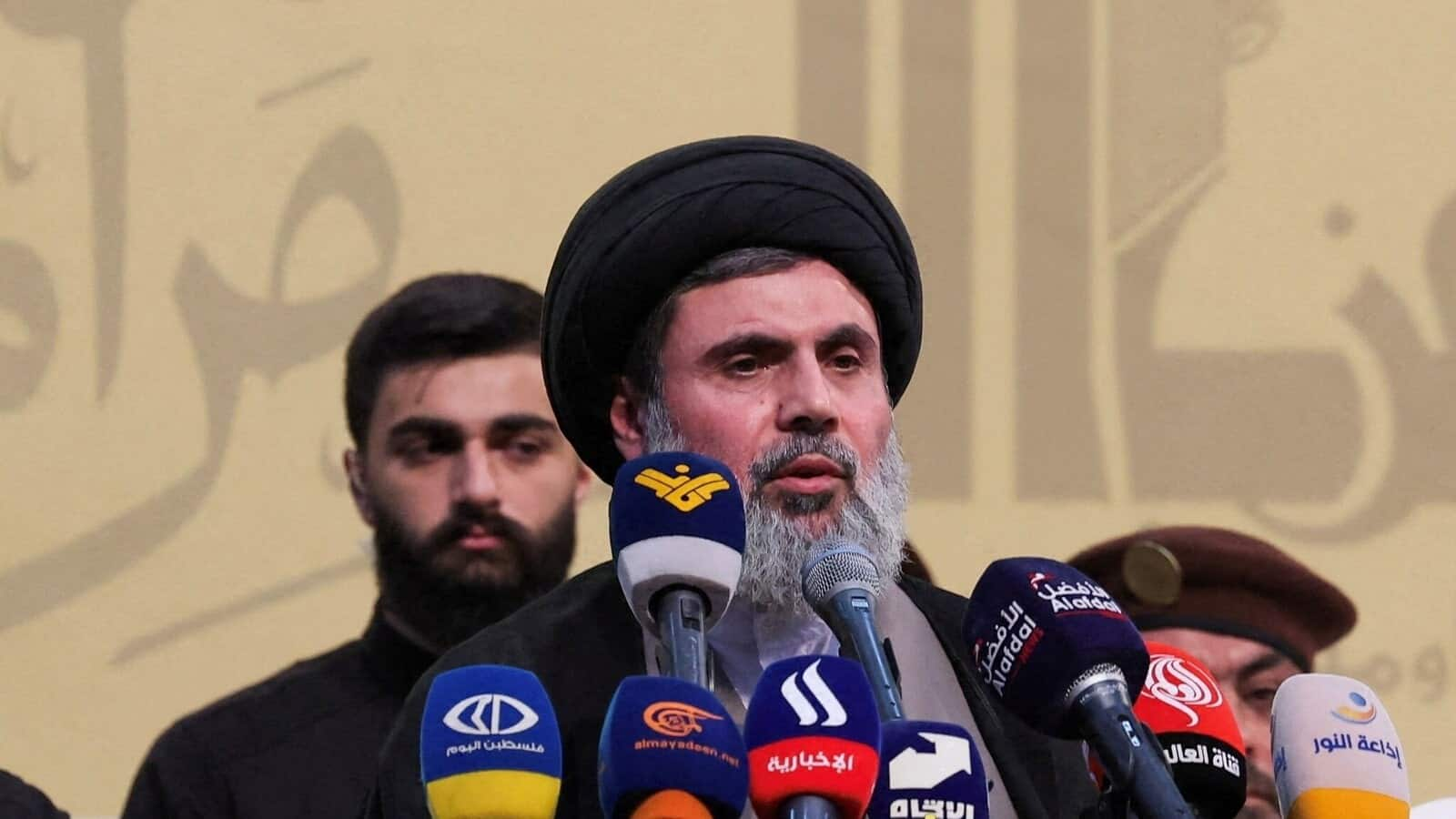
Who's Saffiedine—Hezbollah chief Nasrallah's likely successor targeted by Israel?
What's the story
An Israeli airstrike on Thursday targeted Hezbollah's intelligence headquarters in Beirut, Lebanon. The attack was reportedly aimed at Hashem Saffiedine, a senior official of the militant group and potential successor to its late leader Hassan Nasrallah. However, several news agencies have not been able to confirm these reports or determine whether Saffiedine survived the strike. This comes amidst a series of Israeli strikes against Hezbollah "terror targets," following escalating tensions between the Iran-backed group and Israel's military forces.
Context
Why does this story matter?
The latest clashes between Israel and Hezbollah follow Iran's largest-ever missile strike on Israel, with over 180 missiles fired, in retaliation for the killings of Hezbollah leader Nasrallah and Hamas leader Ismail Haniyeh. Nearly 2,000 deaths have occurred since Israeli attacks on Lebanon escalated in the past year—with most fatalities happening in the last two weeks. The conflict began when Hezbollah launched missiles against Israel a year ago in support of Hamas during its ongoing conflict with Israel in Gaza.
Profile
Saffiedine's background and rise within Hezbollah
Born in 1964 in southern Lebanon's Tyre district, Saffiedine is the maternal first cousin of Nasrallah. He joined Hezbollah in 1994 and quickly rose through the ranks, becoming president of its executive council by 2001. In addition to his political role, he also served as a military commander for the group in southern Lebanon starting from 2010. His leadership style and strong ties with Iran have made him a popular figure within the organization.
Designation
Saffiedine's designation as a terrorist
In 2017, both the United States Department of State and Saudi Arabia designated Saffiedine as a terrorist. The following year, he was at the center of sanctions imposed on Hezbollah by these two nations. Despite being widely regarded as Nasrallah's successor since 2008, Hezbollah's official Telegram communication channel denied his appointment to replace Nasrallah on September 29, 2024.
Reactions
Escalating tensions in West Asia
Separately, Israel's UN ambassador, Danny Danon, had told CNN that the war cabinet is considering its response and "will not sit idly by" after Iran's attack. "It will be a very strong, painful response. It will be soon," he said. Meanwhile, US President Joe Biden said, "I don't believe there is going to be an all-out war. I think we can avoid it," Biden said, but added, "There is a lot to do yet."